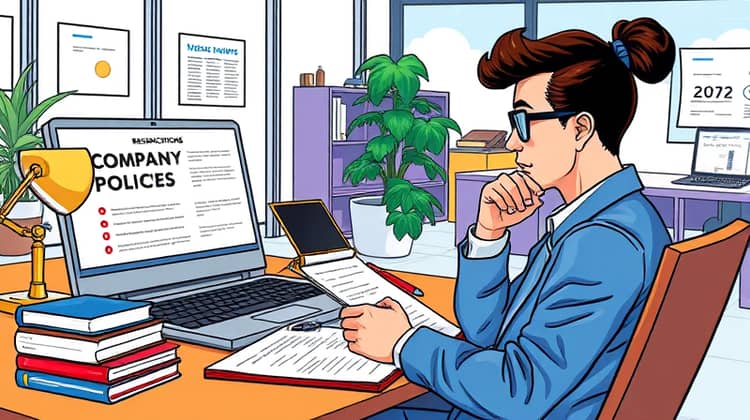Asking for a promotion can be a daunting task that many employees face at some point in their careers. You may feel unsure about your timing, your qualifications, or even how to approach your manager. However, with the right preparation and a clear understanding of your value within the company, you can make a compelling case for why you deserve that next step in your career.
In this guide, we will explore the essential steps you need to take to effectively ask for a promotion. From assessing your readiness to following up after your meeting, each part of this process plays a crucial role in ensuring a successful outcome. Remember, a promotion isn’t just about what you want, but also about the value you bring to your organization.
Assess Your Readiness

Before diving into the process of asking for a promotion, it’s crucial to evaluate whether you are truly ready for this step. Reflect on your accomplishments, contributions to the team, and any additional responsibilities you’ve taken on. A genuine assessment of your skills and achievements will not only boost your confidence but also provide a solid foundation for your request.
Consider the feedback you’ve received from your colleagues and supervisors. Have you consistently met or exceeded your goals? Are there specific examples of how your work has positively impacted the project or the team? Gathering this information will help you present a strong case during your meeting.
Research and Prepare

Preparation is key when asking for a promotion. Research your company’s promotion policies, the criteria for advancement, and how your role fits within the broader company goals. This understanding will help you frame your request in a way that aligns with the company’s values and objectives.
- Review the job description of the position you aspire to and compare it with your current responsibilities.
- Identify any skills or experiences you might need to acquire to be a strong candidate for the promotion.
- Gather evidence of your accomplishments, such as performance reviews, awards, and project successes.
Choose the Right Time

Timing can significantly impact the outcome of your promotion request. Consider the company’s current situation and the workload of your manager. Approaching your manager during a busy period or right after a major project might not be the best idea; instead, find a moment when they are less stressed and more receptive.
Additionally, assess your own workload and current performance. If you are in the midst of a major deadline or your performance has recently lagged, it may be better to wait until you are in a stronger position. A solid performance history leading up to your request can greatly enhance your credibility.
Request a Meeting

Once you feel ready and have chosen an appropriate time, it’s time to request a meeting with your manager. Be direct but polite in your approach. You want to ensure that your manager understands the purpose of the meeting and can set aside uninterrupted time to discuss your request.
- Send a calendar invite with the agenda outlined clearly.
- Mention that you would like to discuss your career development and potential for growth within the company.
- Ensure that you request a time that suits your manager’s schedule, showing respect for their time.
This sets a professional tone for the meeting and shows you're serious about your career progression.
Present Your Case

During the meeting, it’s crucial to present your case clearly and concisely. Begin by expressing your gratitude for the opportunities you’ve had in your role and share your accomplishments that exemplify your readiness for a promotion.
- Outline how you have contributed to the team’s success.
- Discuss specific projects where your role was critical.
- Mention any additional responsibilities you have willingly taken on.
Be Professional and Positive

Throughout the conversation, maintain a professional attitude. Even if the discussion takes a turn you weren’t expecting, it’s crucial to remain respectful and open-minded. A positive demeanor can help set the tone for a constructive conversation and leave a lasting impression on your manager.
Express enthusiasm for both your current role and potential future responsibilities. By demonstrating your commitment to the company’s success, you reinforce the notion that you are a valuable asset worth investing in.
Prepare for Different Outcomes

Be ready to accept any response, positive or negative. Having a plan will help you react professionally regardless of the outcome. If your request is granted, celebrate! If not, ask what steps you can take to position yourself for a promotion in the future.
- Consider asking for feedback on what was lacking in your request.
- Request a timeline for when a promotion might be realistic based on your current role and responsibilities.
- Analyse how you can contribute more effectively to the team or project.
Understanding that not every request yields immediate results can help you maintain your motivation and professional growth.
Follow Up

After your meeting, it’s essential to follow up. Sending a thank-you email expressing gratitude for your manager’s time and consideration can leave a favorable impression. In this email, summarize the main points discussed, especially any actionable feedback or next steps agreed upon during your meeting.
Additionally, if your manager has committed to providing feedback or has given a timeline for reconsideration, politely remind them of your discussion in future check-ins.














